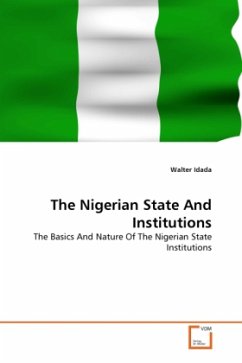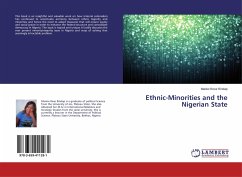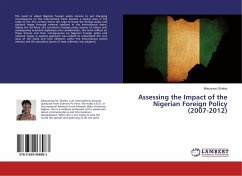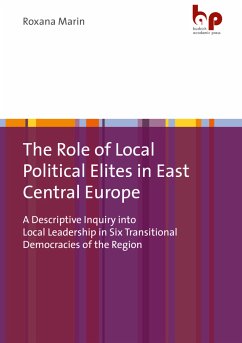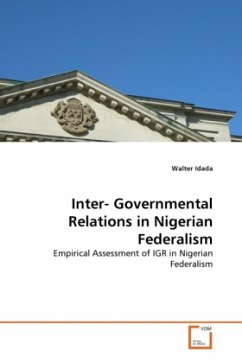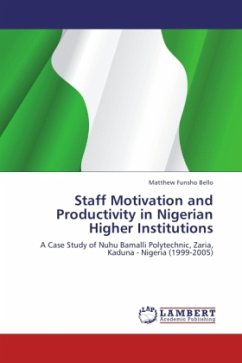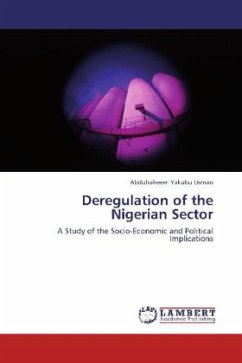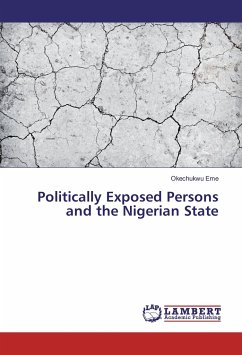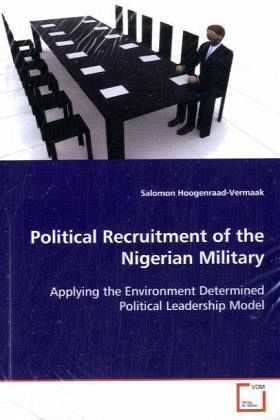
Political Recruitment of the Nigerian Military
Applying the Environment Determined Political Leadership Model
Versandkostenfrei!
Versandfertig in 6-10 Tagen
45,99 €
inkl. MwSt.

PAYBACK Punkte
23 °P sammeln!
The May 1999 election victory of General Obasanjo not only highlights the fragile civil-military relations of Nigeria, but essentially illustrates the immense influence the military, civil society and global powers have on the recruitment process of political leaders especially in the developing world. This book, therefore, provides a comparative analysis on the Nigerian civil-military environment and sheds light on the undemocratic recruitment of military leaders as political leaders, with the aim to predict and prevent undemocratic recruitment attempts. The analysis shed some light on undemo...
The May 1999 election victory of General
Obasanjo not only highlights the fragile civil-
military relations of Nigeria, but essentially
illustrates the immense influence the military,
civil society and global powers have on the
recruitment process of political leaders
especially in the developing world. This book,
therefore, provides a comparative analysis on the
Nigerian civil-military environment and sheds light
on the undemocratic recruitment of military leaders
as political leaders, with the aim to predict and
prevent undemocratic recruitment attempts. The
analysis shed some light on undemocratic recruitment
attempts by the military across the globe and as
such should be especially useful to those interested
in leadership -, political behaviour and
development studies, as well as to students of
history and military studies. The book should also
appeal to anyone interested in studies pertaining to
Africa.
Obasanjo not only highlights the fragile civil-
military relations of Nigeria, but essentially
illustrates the immense influence the military,
civil society and global powers have on the
recruitment process of political leaders
especially in the developing world. This book,
therefore, provides a comparative analysis on the
Nigerian civil-military environment and sheds light
on the undemocratic recruitment of military leaders
as political leaders, with the aim to predict and
prevent undemocratic recruitment attempts. The
analysis shed some light on undemocratic recruitment
attempts by the military across the globe and as
such should be especially useful to those interested
in leadership -, political behaviour and
development studies, as well as to students of
history and military studies. The book should also
appeal to anyone interested in studies pertaining to
Africa.




